Birth and death intertwined: Infants born and killed by Israel in Gaza since Oct. 7
By Humaira Ahad
Shahid Alqutati, a 23-year-old Palestinian woman, sits on her bed at Hamad Hospital in the Qatari capital Doha, mired in thoughts. Her gaze is fixed on her amputated leg.
“A week before the launch of the war, we bought everything for the baby—clothes, a cradle. We were very excited for her arrival,” she said.
However, as fate would have it, her daughter Sham was tragically killed in her mother’s womb two months before her due date.
Recently released data from the health ministry in Gaza reveals that Israel has killed at least 115 infants born during what is widely described as the "bloodiest" war of the 21st century.
A total of 40,265 Palestinians, 69 percent of them children and women, have been killed in the Israeli-American genocidal war on the besieged Gaza Strip since October 7, 2023.
A total of 3,493 massacres have been committed by the occupation forces in the past 11 months, with thousands of people still trapped under the rubble and unaccounted for.
Alqutati family lived a happy and normal life until the fateful day when a missile struck their third-floor apartment in northern Gaza, killing her husband, Ali, and their unborn child.
The traumatized mother was immediately rushed to Al-Shifa Hospital in Gaza City, but the first Israeli military siege of the hospital in November forced her out of the facility.
As her condition worsened, she was eventually evacuated from Gaza with the help of friends.
According to official statistics, Israel has killed 53 male infants and 62 female infants.
The Palestinian health ministry reports that 48 of the children were less than a month, 47 were between 1 and 3 months, 15 were between 4 and 6 months, and 5 were between 6 and 8 months.
We bring out stories behind these cold numbers of infants massacred by the apartheid regime.
Out of nearly 17,000 Palestinian children Israel has killed in the Gaza Strip since October 7, 2023, virtually 2,100 were babies under the age of two.
— Press TV 🔻 (@PressTV) August 14, 2024
Read more: https://t.co/ZAJurRksRA pic.twitter.com/MYhg7NiqCL
Aser and Aseel
A recent viral video showed Mohammad Abu al-Qumsan holding the freshly laminated birth certificates of his newborn twins, Aser and Aseel, as he wailed and sobbed inconsolably.
On August 14, 2024, al-Qumsan went to al-Aqsa Hospital to register the births of his infants. While he was still at the hospital, an Israeli airstrike killed Aser, Aseel,
The mother of twins, Jumana, and their grandmother, Arafa, were also killed.

Carmel
Born amid the chaos and commotion of the genocidal war on Gaza, Carmel was named after Mount Carmel in Haifa, a city in occupied Palestinian territories.
Her father chose this name in hopes that baby Carmel would bring them luck and that they would one day visit the occupied city in a free Palestine.
Tragically, the one-month-old was killed by the child-murdering regime in February 2024.

Ayat Farwaneh
Ayat's family never had the chance to register her birth, as they didn’t know what was in store.
The 17-day-old infant was killed along with her entire family when Israeli forces targeted their home on October 15, 2023, in northern Gaza, leaving behind no one to mourn her.

Wissam and Naeim
Heart-wrenching videos surfaced on social media recently showing Rania Abu Anza holding her five-month-old lifeless twins in her lap.
The twins, who became known as "miracle babies," were born after more than ten years of struggle with infertility and multiple rounds of in vitro fertilization (IVF).
Born at the beginning of the Israeli genocidal war on Gaza, the twins were killed in an Israeli airstrike that targeted their home in Rafah city, southern Gaza Strip.
“Abu Warda, have you gone, my son? Have you gone, my sweetheart? Have you gone, Souson? Souson, answer me, I will sing a lullaby for you. Look how beautiful they are,” the devastated mother wailed as she cradled her slain children.

Yara Eliwah
Yara’s mother, Samah Naem, was a dentist. Naem’s son eagerly awaited his baby sister’s arrival, hoping she would grow quickly to become his playmate.
However, the siblings and their family were all killed in January when an Israeli airstrike targeted their home on January 8, 2024, in Gaza.

Sabreen al-Ruh Shukri
Sabreen’s birth was considered a miracle by doctors. Her mother, who was seriously injured in an Israeli bombing, was taken to a hospital in Rafah city, southern Gaza Strip, where Sabreen was delivered via cesarean section.
The mother died before the infant’s birth. Having sustained grave injuries in the same bombing that killed her mother, Sabreen died minutes later.
“I received a call from the administration of the Emirati Hospital in Rafah today, Friday, telling me that her condition had worsened and they were unable to save her,” Sabreen’s uncle, Rami al-Sheikh, said. Sabreen was buried in her father’s grave.
“I went through all the procedures at the hospital, brought the child’s body home, opened her father’s grave, and buried her alongside him in a cemetery in Rafah,” al-Sheikh added.

Mohammad Farajallah
Mohammad’s conception, like that of his sister, was a struggle for his parents.
Mohammad’s parents tried for a baby for several years before resorting to IVF. After multiple attempts, their elder daughter Marium was born.
The couple endured a similar ordeal for five years before their son was born during the war.
Tragically, the family’s joy turned out to be short-lived, as Mohammad was killed with his mother in an Israeli airstrike on February 5, 2024.

Abdullah
Shaimaa al-Ghoul was nine months pregnant when an Israeli airstrike pounded her home, killing her husband and two children.
“My belly was hit by shrapnel, killing my unborn son, Abdullah,” al-Ghoul said from an isolation room in a Qatari hospital.
The Palestinian woman is now battling a drug-resistant infection she contracted in Gaza’s hospitals, which have been systematically dismantled by the Zionist regime.

Starvation as a tool to kill infants
Israel has been added to the United Nations "blacklist" of regimes that have committed abuses against children amid the genocidal war. Beyond killing Palestinian children with bombs, the regime has been accused of starving infants to death.
Doctors in Gaza report a higher-than-normal infant mortality rate, with many babies being born underweight.
“What doctors and medical staff are telling us is that more and more they are seeing the effects of starvation; they’re seeing newborn babies simply dying because they are too low in birth weight,” said Dr. Margaret Harris of the UN World Health Organization (WHO).
According to UN reports, babies in Gaza are malnourished, with many too weak even to cry. Human rights organizations have accused Israel of using starvation as a weapon to kill Palestinians in Gaza.
“Medical teams in the war-shattered enclave have been admitting increasing numbers of dangerously underweight pregnant women,” WHO reported.
With formula milk in short supply and mothers too dehydrated and malnourished to breastfeed, many newborns are unable to survive. Last month, UN human rights experts accused Israel of carrying out a "targeted starvation campaign" that has resulted in the deaths of children in Gaza.
The deaths of infants, including those barely six months old, highlight the spread of famine from northern to central and southern Gaza, according to the UN.
Aid obstructions kill babies on ventilators
Samaher had endured a difficult pregnancy. The stress of the war led to her daughter Amal’s premature birth.
“Samaher’s poor health meant her daughter was just waiting for death,” said Dr. Ahmed Kahlot, head of the incubators department at Kamal Adwan Hospital, was quoted as saying.
Amal was placed in an incubator, but the lack of medical facilities made survival impossible.
“These babies are dying. It is God’s decision, but it is caused by people,” said Amal’s father, Ahmed Maqat.
The besieged strip is also facing a severe shortage of ventilators and incubators. The situation is so dire that several babies are forced to share single incubators, making infant care extremely difficult.
"Most babies will die," warned Dr. Ahmed al-Shaer, a pediatric specialist at Al-Helal Al-Emirati Maternity Hospital.
Nearly 50,000 pregnant women in Gaza are experiencing extreme stress and fear about whether their babies will survive. “Everyone in these beds today is at risk of dying. We are waiting for them to die one by one,” Maqat added.
Many infants in hospitals remain unaccompanied. Doctors have coined the acronym WCNSF, or “wounded child, no surviving family,” for registering them.
“We are uncertain if their family members have been killed or are still alive. Even when these children died, we could not find any of their relatives to bury them. The hospital administration had to contact the police, and they were buried by the hospital,” said Dr. al-Shaer.
In November of last year, the bodies of five premature Palestinian babies were discovered at al-Nasr Hospital as reporters and aid workers sifted through the remains of the bombed-out facility.
The babies were connected to non-functional hospital machines, their bodies darkening and disintegrating from decay. Distressing images showed flies and maggots crawling across the skin of one child.
Two premature babies died at al-Shifa Hospital in November last year after the neonatal intensive care unit ceased to function due to a lack of electricity.
Meanwhile, officials at Kamal Adwan Hospital in northern Gaza have been sounding the alarm over fuel and medicine shortages that threaten to shut down operations.
“The hospital’s neonatal and pediatric care departments have already stopped functioning due to a lack of oxygen needed to operate generators as a consequence of fuel shortages,” said Dr. Hussam Abu Safiya, head of Kamal Adwan Hospital, on August 21.
Similarly, the administration of Al-Awda Hospital in north Gaza warned that the facility would cease to operate for the same reasons.
“The hospital will be forced to stop functioning within 24 hours if fuel is not delivered by the World Health Organization,” said Mohammed Salha, the hospital's director.
Iran Armed Forces shoot down US F-15 fighter jet near Kuwait border
IRGC, Army launch fresh waves of missile strikes against Israeli, US targets
Red Crescent Society: 555 people killed across Iran in US-Israeli onslaughts
Operational concerns delayed US-Israeli aggression against Iran for a week: Report
Iran slams Israeli attacks on Lebanon, warn UNSC’s inaction to embolden regime
Iran says has ‘no choice’ but to fight back, holds no enmity toward American people
Bahraini police assaults crowds mourning loss of Ayatollah Khamenei
Iran posed no imminent threat to US: Pentagon tells Congress




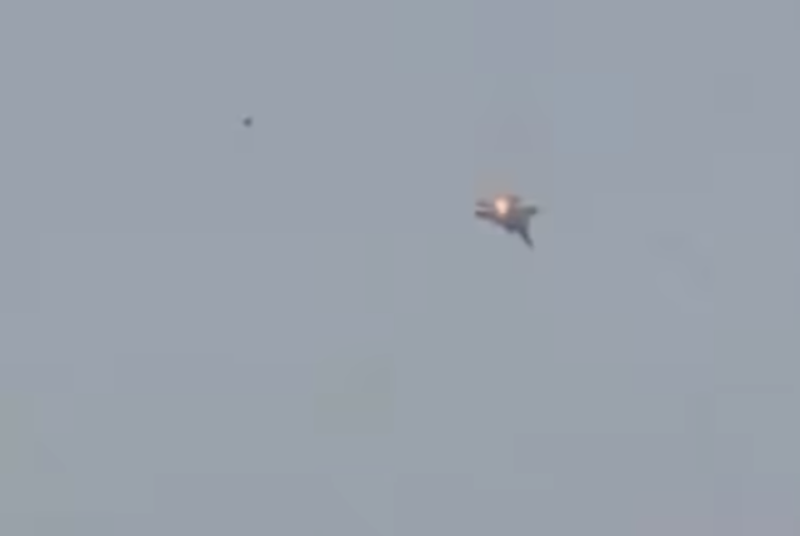
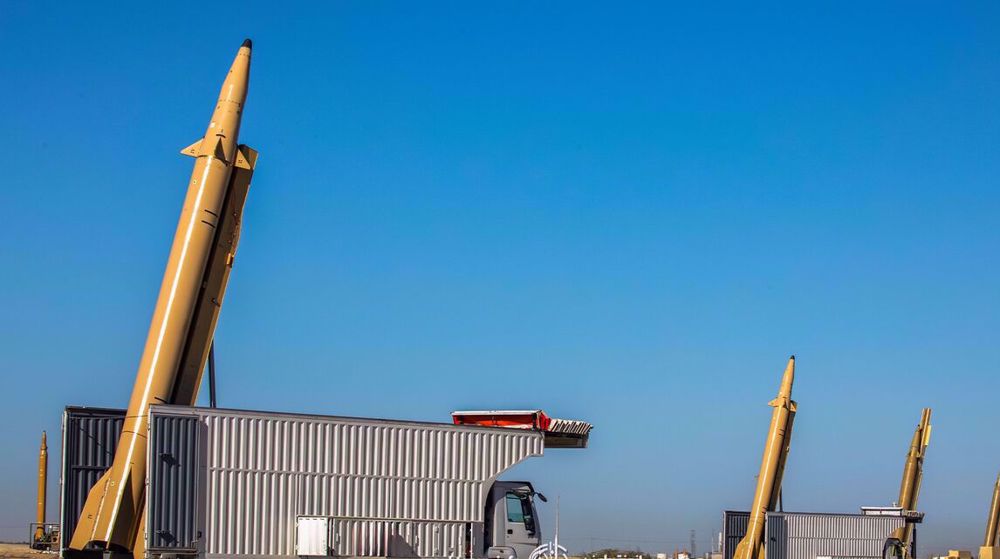
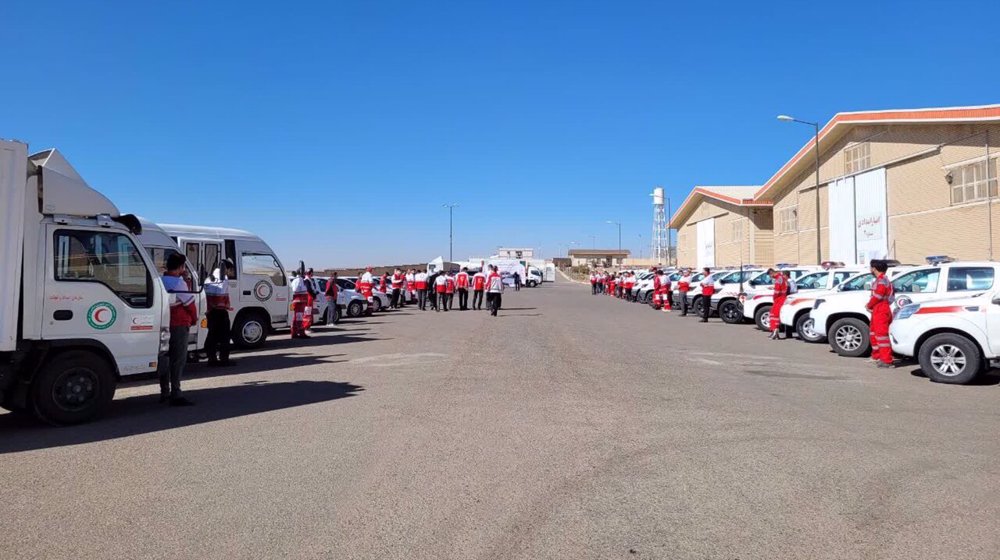





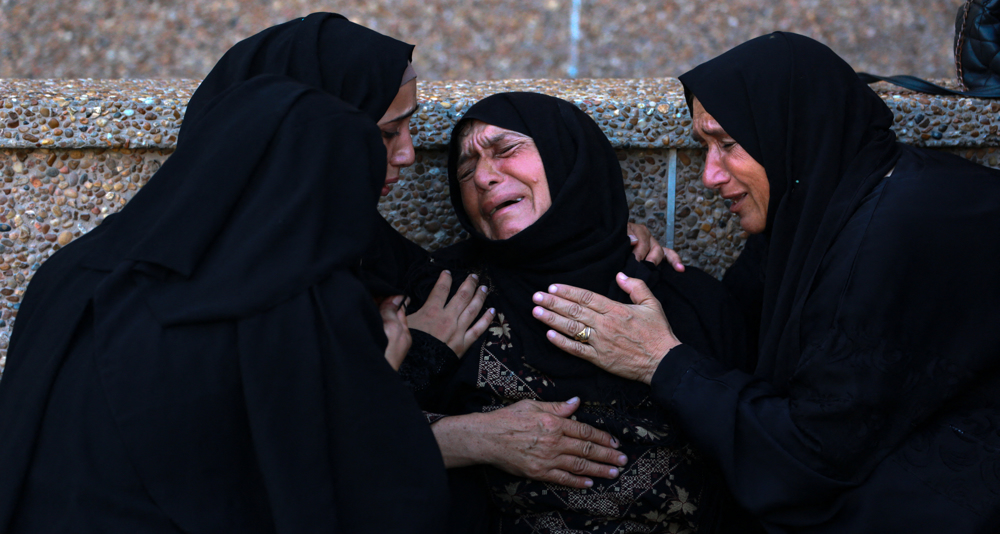

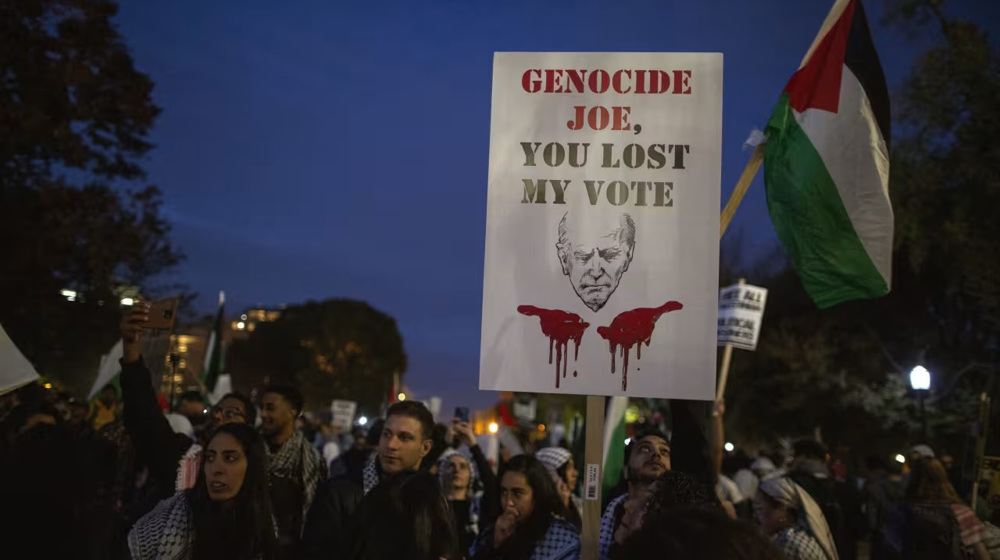

 This makes it easy to access the Press TV website
This makes it easy to access the Press TV website